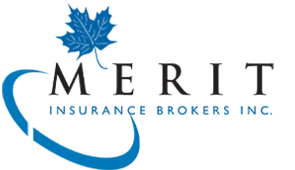e-Commerce Insurance
Merit Insurance Brokers provides e-Commerce insurance designed for online business owners and marketplace sellers on platforms like Amazon, Wayfair, Walmart, Etsy, Shopify, eBay, and more!
Many platforms may require commercial general liability insurance based on your gross sales and business type. Even if it’s not mandatory, having insurance is a smart way to protect your hard work and investment.
What Insurance Do I Need For an eCommerce Business?
- Liability Insurance for e-Commerce: CGL insurance is essential for businesses, especially in e-Commerce, where marketplaces often require it. Product liability insurance protects you if your product causes injury.
- Cyber Insurance: Safeguard your online business from cyberattacks, data breaches, and extortion. Cyber insurance ensures your business can recover, even from vendor-related issues.
- Errors & Omissions (E&O): Protect your business from claims if a product is defective or a service fails to meet expectations.
- e-Commerce Shipping Insurance: Cargo insurance covers shipment damage or theft, ensuring smooth order fulfillment for your customers.
We have partnered with a market leader, Foxquilt Commercial Insurance, to protect businesses like yours. Our clients can benefit from Foxquilt’s quote and bind platform to easily access affordable eCommerce, Contractor and Personal Services products.
FREQUENTLY ASKED QUESTIONS
What types of insurance do I need to know about for my business?
As a business owner in Ontario, you should consider obtaining insurance coverage for general liability, property damage, business interruption, and professional liability (if applicable). Depending on your industry and specific risks, you may also need to consider additional policies such as product liability, cyber liability, and directors and officers (D&O) liability insurance. It’s important to consult with an experienced insurance agent or broker to determine the appropriate coverage for your business needs.
What is co-insurance?
The co-insurance clause is a common and often misunderstood part of property insurance policies.
Co-Insurance is an agreement between YOU and the Insurance Company, whereby you agree to maintain coverage up to a stated percentage of the value of the property you wish to insure (usually 80%, 90% or 100%).
In the event of a loss, the amount of payout from the insurance company is calculated on a formula.
How to calculate co-insurance?
The simple formula for calculating the coinsurance penalty is: amount of insurance in place / Amount of insurance that should have been in place x the loss, less any deductible is the amount actually paid.
What is a certificate of insurance?
A certificate of insurance is a document that verifies the existence of an insurance policy. In Ontario, it is typically issued by an insurance company and provided to a third party as proof of insurance coverage. The certificate will include information about the insurance policy, such as the type of coverage, policy limits, and the effective dates of coverage.
What is Cyber Insurance?
Cyber insurance is a type of insurance coverage that provides protection against losses related to cyberattacks and data breaches. This insurance policy can cover costs related to notifying affected individuals, legal expenses, and costs associated with investigating and repairing damages caused by cyber incidents. Cyber insurance can also provide resources to help businesses prevent future attacks and mitigate risks. It is an important consideration for any business that handles sensitive customer or employee data or relies on technology for daily operations.
What is Identity Theft Coverage?
Identity theft coverage is a type of insurance policy that can help protect individuals from the financial and legal consequences of identity theft. It typically provides assistance with the costs associated with restoring credit and resolving fraudulent accounts, as well as reimbursement for stolen funds or expenses incurred during the recovery process.
What is a deductible?
This is the part that you pay in the event of a claim. The insurance company covers the rest, up to the $ amount of loss, or your policy’s limits whichever is less. The higher the deductible, the lower your insurance premium and vice versa.
If I cancel my policy, I won’t owe the last month’s insurance right?
If the policy is canceled by you, the calculation of the cancellation is Short Rate. The Short Rate Penalty is based on the days the policy has been in force. Depending on your payment schedule and withdrawal date, there may be an outstanding premium, which is collected after cancellation is processed. If you need to cancel it is always best to cancel the policy on the anniversary date to avoid cancellation fees.
When it comes to business insurance, what is the difference between commercial general liability and professional liability coverage?
The main difference between professional liability and commercial general liability (CGL) insurance is the type of risks that they cover. CGL covers the cost of legal and medical expenses associated with claims declaring third-party property damage or bodily injury because of your business routine.
Professional liability insurance (often referred to as errors and omissions), provides coverage for claims resulting from negligence or failure to deliver a professional service as promised, which could have led to a financial loss on your client’s behalf.















